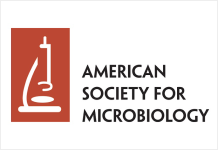
Frontiers is thrilled to announce a major milestone has been reached this week: the publication of our 150,000th open-access article!
This is a major achievement – not just for Frontiers – but for all our authors as together we seek to fulfill the overarching goal to make science open – accelerating scientific and technological innovation, societal progress, and economic growth. Together, we are 150,000 steps closer to realizing that aim.
We are proud to announce that Frontiers’ 150,000th paper, COVID-19 Management and Arrhythmia: Risks and Challenges for Clinicians Treating Patients Affected by SARS-CoV-2 has been published in Frontiers in Cardiovascular Medicine. The article reviews the management of arrhythmic risk in the use of a combination of multiple drugs in COVID-19 patients, an important resource for clinicians. It is authored by a team of specialists from the School of Physiology, Pharmacology and Neuroscience at the University of Bristol, as well as the Liverpool Heart and Chest Hospital and the Gloucestershire Hospitals NHS foundation trusts.
The timing of this article is pertinent: we need high-quality research around COVID-19 with a sense of great urgency. The scientific community is rallying to respond and find a way to manage – and eventually bring a halt to – the spread of this virus. Never has it been more important that high-quality scientific research is made universally accessible. While several journals and publishers have exceptionally made some of their articles free to access and read during this time of crisis, the open and free access to research is the norm at Frontiers.
The paper will also be published via Frontiers’ Coronavirus Knowledge Hub, a platform we have specifically launched as a trusted source of the latest science and expert opinion on SARS-CoV-2 and COVID-19.
Now and into the future, our overarching aim is to make science open. We can take pride we are, with our research communities, 150,000 articles closer to achieving that goal. Frontiers is a digital native and one of the first publishers to fully appreciate the extent to which the online accessibility can turn science into a universal asset. If it is open, science should and can benefit all people, regardless of background, position, or location. Science is the engine of modern civilization and we are proud to play our part in spreading and sharing it with the world.

























